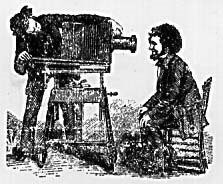The discourse on early Cultural Studies, as well as cultural studies' early discourses, owes a remarkable enrichment to voices and perspectives coming from U.K.'s former colonies and other European countries. These contributions helped to broaden the issues, making the new-born discipline eminently encompassing. However, the authors didn't hold themselves back with criticising several assumptions, sometimes up (or down?!) to the very quiddity of critical notions, such as: culture, art, dialectical materialism. Sardar and Van Loon name two thinkers believed to be crucial: Louis Althusser (1918-1990) and Antonio Gramsci (1891-1937).
"The French philosopher L. Althusser imported structuralism into Marxism in his effort to make it a science. Althousser conceptualizes society as a structured whole which consists of relatively autonomous level - legal, political, cultural - whose mode of articulation (or "effectivity", as he says) is only determined "in the least instance" by the economy. [...] So, for scientific Marxism, there is no society but only modes of production which evolve in history and are permanently inherent in the relatively autonomous levels of the structured whole". The ideas and terminology of Althusser stimulated a proficuous debate on ideology and Marxism; nevertheless Althusser's ideological standpoint itself was later attacked by E.P. Thompson in The poverty of theory, 1978. "The key term in Gramsci's thought is hegemony, which is critical for an understanding of history and the structure of any given society. Hegemony is what binds society together without the use of force." (Sardar and Van Loon, page 49). As A Cultural Studies Reader point out, Antonio Gramsci was influenced by many other authors: Benedetto Croce, Nietzsche, Hegel, Marx, Lenin to name a few. The book by Munns and Rajan then continues by mentioning a number of -isms and other authors, all somehow or other connected to each other. The variety of interconnections is a result itself of the interdisciplinary cultural studies approach. As we discussed in class today, sometimes it was quite difficult for some of them to read others' publications due to the lack of a lingua franca. In some cases it was harder: Gramsci's manuscript written in jail wasn't even meant to be published..
Also, the Cold War and the absence of the World Wide Web didn't make things any easier..
Ideology: "Gramsci emphasized the complexity of the relationship that define human reality at any particular time and place; and he rejected the assumption that such relationships were the necessary result of trascendental forces - like the economy. Consequently, he opposed the tendency to assume that class and/or economic relations necessarily provided the truth about everything. [...] His concept of hegemony describes an ongoing struggle to create ideological consensus within a society, while his concept af common sense emphasizes the fragmentary and contradictory nature of the unconscious meanings and beliefs with which people make sense of their world." from New Keywords, page 176.
"Structuralism began in linguistics with the work of Ferdinand de Saussure [...] As a method, the basics of structuralism consist of analyzing social events ... to discover the synchronic structures that both underlie them and make them possible, which are then typically broken down into units, codes, rules of combination, etc. The essential theory underlying this method is that these structures are autonomous, and that their units are interdependent, because they are constituted through contrast with one another. So how we discursively conceive of ourselves, or anything, for that matter, is dependent on contexts found within historically contingent systems". http://en.wikipedia.org/wiki/Structuralism
A link I found useful related to today's readings is: http://www.aber.ac.uk/media/Documents/S4B
The web page is entitled "Semiotics for beginners", however, it depends on what this Welsh university means for beginner..
One more thing: if you feel like taking a break after the semiotics for so called beginners (see above), go to youtube and type in "monty python marx", then select one of the videos. The communist quiz sketch and the philosophical soccer match are awesome..
announcements
This blog was created by and for students in an Introduction to Cultural Studies class at the University of Washington. Through an investigation of urban experience and representation--in theory, in graphic novels and in our own "readings" of Seattle's University District--we considered the formation and history of cultural studies as an (anti)discipline, with a special emphasis on the questions, "What does cultural studies do, and how do you do cultural studies?"
If you'd like to know more about the class, the blog or our U-District artifact project, please contact Gabrielle Dean: gnodean@u.washington.edu.
If you'd like to know more about the class, the blog or our U-District artifact project, please contact Gabrielle Dean: gnodean@u.washington.edu.
Subscribe to:
Post Comments (Atom)
blog archive
-
▼
2008
(92)
-
▼
April
(35)
- Identity in City of Glass
- History of Origins: Race Studies
- History of Origins: Gender Studies
- History of Origins: Gender Studies
- History of Origins: America
- History of Origins: Race Studies
- History of Origins: Gender Studies
- History of Origins: Race Studies
- History of Origins: Race Studies
- History of Origins: Media and Science
- History of Origins: Media and Science
- History of Origins: Gender Studies
- History of Origins: Media and Science
- History of Origins: European Theory
- History of Origins: European Theory
- History of Origins: European Theory
- History of Origins: European Theory
- History of Origins: European Theory
- History of Origins: America
- History of Origins: European Theory
- History of Origins: America
- History of Orgins: European Theory
- History of Origins: European Theory
- History of Origins: Great Britain
- History of Origins: Great Britain
- Cultural Studies in Britain
- Cultural Studies in Britain
- History of Origins: General
- History of Origins: General
- History of Origins: General
- History of Origins: General
- "Orientalism"
- Are You an Author?
- "Paris, Capital of the 19th Century"
- READING: A WEB MODEL
-
▼
April
(35)

No comments:
Post a Comment